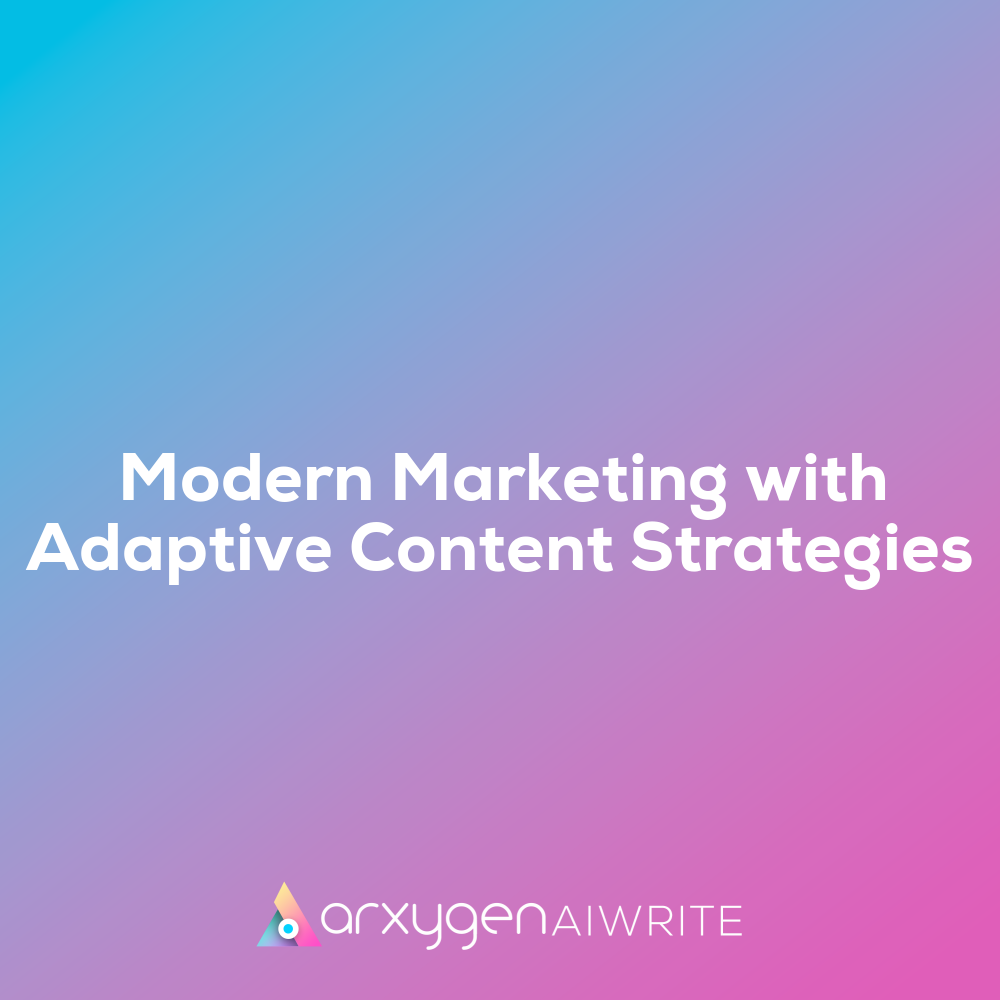Exploring the Importance of Adaptive Content Strategies in Modern Marketing
Adaptive content strategies refer to the dynamic approach of tailoring marketing materials to meet the diverse needs and preferences of various audiences. In today’s fast-paced digital landscape, the significance of these strategies cannot be overstated; they empower brands to deliver relevant messages that resonate with consumers on a personal level. By embracing adaptability, marketers can ensure their content remains engaging and effective, ultimately driving higher conversion rates and customer loyalty.
Moreover, the integration of AI technologies has revolutionised how brands enhance the adaptability and effectiveness of their content. For instance, machine learning algorithms can analyse user behaviour and preferences in real time, enabling marketers to adjust their messaging instantly. This means that a campaign can evolve based on audience feedback, leading to a more personalised experience that fosters deeper connections. As a result, brands leveraging AI are not only staying ahead of the competition but also building a more responsive marketing ecosystem.
The Role of AI in Shaping Content Adaptability
Incorporating AI tools into adaptive content strategies allows for a level of precision previously unattainable. With predictive analytics, marketers can anticipate trends and shifts in consumer behaviour, allowing them to craft content that speaks directly to emerging interests. This forward-thinking approach ensures that marketing efforts are not just reactive but proactively cater to the evolving landscape of consumer expectations. Ultimately, the fusion of adaptive content strategies and AI technologies is setting a new standard for what effective marketing looks like in the modern age.
The Impact of Artificial Intelligence on Customising Marketing Content
In today’s digital landscape, AI algorithms play a pivotal role in analysing user behaviour to craft personalised content experiences. By evaluating vast amounts of data, these intelligent systems can discern patterns that reveal individual preferences and interests. For instance, an e-commerce platform might utilise AI to track browsing habits and purchase history, enabling it to recommend products tailored specifically to each user’s taste. This level of personalisation not only enhances user satisfaction but also significantly increases the likelihood of conversion.
Moreover, several case studies illustrate the effectiveness of AI-driven adaptive strategies in boosting engagement metrics. One notable example involves a global streaming service that implemented machine learning algorithms to curate content recommendations. As a result, they witnessed a remarkable 30% increase in viewer retention rates, demonstrating how targeted suggestions can keep audiences engaged for longer periods. Similarly, a prominent online retailer adopted AI tools to optimise email marketing campaigns, leading to a 25% rise in open rates and a substantial improvement in sales conversions.
These successes highlight the transformative potential of integrating AI into marketing strategies. By leveraging advanced analytics, brands can create dynamic content that evolves based on real-time interactions with users. This adaptability ensures that marketing efforts remain relevant and impactful, catering to the ever-changing preferences of consumers. Furthermore, as AI continues to advance, its ability to predict future behaviours will enable marketers to stay one step ahead in delivering exceptional experiences.
Ultimately, embracing adaptive content strategies powered by artificial intelligence is no longer optional; it’s essential for brands striving to thrive in a competitive market. As companies like those mentioned reap the benefits of these innovations, others must consider how they can harness similar technologies to enhance their marketing efforts and foster deeper connections with their audiences.
Exploring Ethical Implications and Future Directions of AI in Adaptive Content
The integration of artificial intelligence in content creation presents a myriad of challenges and ethical dilemmas that marketers must navigate. One pressing concern is the potential for biased algorithms, which could inadvertently perpetuate stereotypes or misrepresent diverse voices. Furthermore, as AI-generated content becomes more sophisticated, questions surrounding authorship and intellectual property arise, complicating the landscape for creators. Despite these hurdles, the evolution of AI technology is set to revolutionise adaptive content strategies in remarkable ways. For instance, advancements in natural language processing are likely to enable hyper-personalised content that resonates deeply with individual preferences. Additionally, predictive analytics will empower marketers to anticipate consumer behaviour with unprecedented accuracy, refining their messaging accordingly. As we look ahead, the fusion of AI with ethical practices will be paramount in shaping a responsible approach to content marketing.

